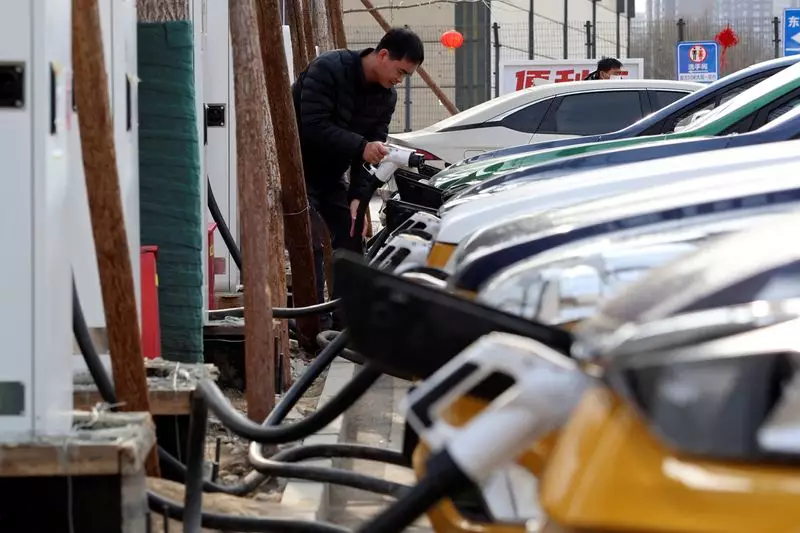The recent decision by the European Union to impose tariffs on Chinese electric vehicles has been met with opposition from China and various stakeholders. Despite the EU’s argument regarding overcapacity in China’s EV industry, Beijing and industry insiders are eager to de-escalate the situation and strike a deal to avoid additional costs for Chinese electric car makers. The Xinhua commentary emphasizes the importance of collaboration between China and the EU on economic and trade issues, rather than resorting to tariffs.
The tariffs imposed by the EU could potentially slow the uptake of electric vehicles in China, impacting climate-change goals and increasing costs for consumers. The EU’s decision to combat Chinese subsidies with additional tariffs ranging up to nearly 50% could have significant consequences for Chinese electric car manufacturers such as SAIC. Despite being China’s largest automaker, SAIC has expressed deep concerns over the tariffs and their potential impact on sales.
Chinese automakers, a mix of state-owned and private firms, have traditionally benefited from government subsidies and dominance in battery-minerals refining. The hypercompetition in China’s EV market has led to innovative practices and cost reductions. While the EU’s provisional duties are set to come into effect in July, Chinese EV maker stocks have shown mixed reactions, with some like BYD experiencing positive gains. Analysts predict that Chinese EV makers may need to adjust prices to offset the cost increases caused by the tariffs.
European automakers, particularly those heavily dependent on sales in China, are apprehensive about potential retaliation from Beijing. There is little support for tariffs within the continent’s auto industry, with major players like BMW, Volkswagen, Stellantis, and Mercedes Benz opposing such measures. The fear of Chinese retaliation and the impact on sales has led to a decline in shares of European carmakers following the announcement of the EU tariffs.
The EU tariffs on Chinese electric vehicles have sparked tensions between the two major economic powers. While the EU aims to address concerns about overcapacity and subsidized exports, the impact on the Chinese and European auto industries remains to be seen. It is essential for both parties to engage in further consultations and negotiations to find a mutually beneficial solution and avoid a trade war that could harm the global automotive market.

